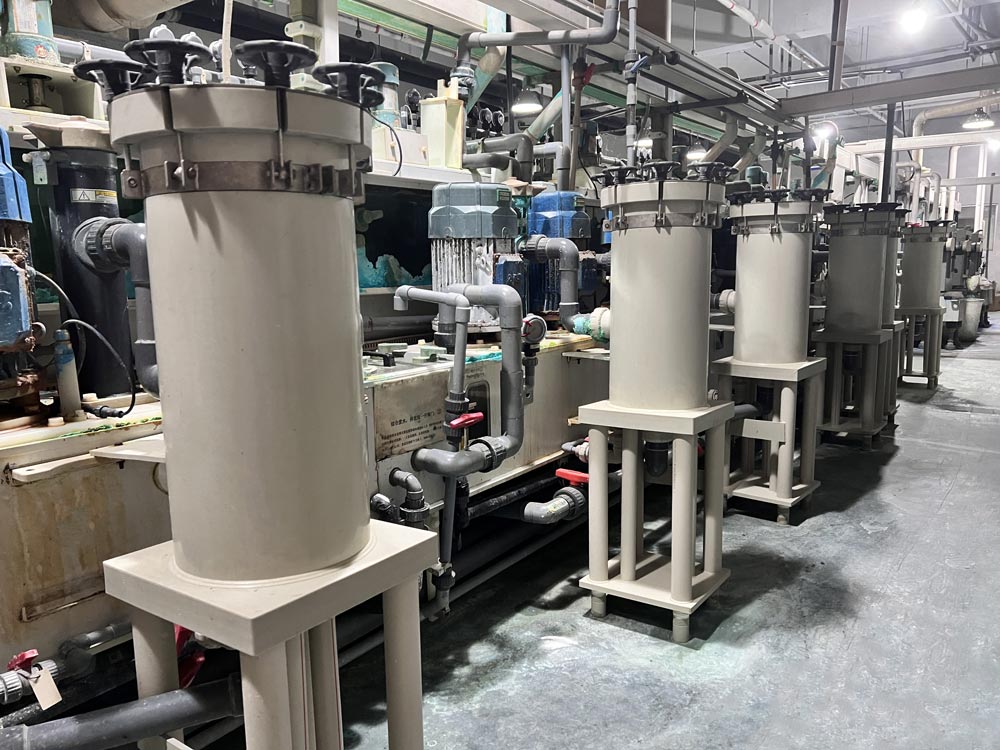# Electroplating Filter: Enhancing Efficiency and Purity in Metal Deposition Processes
Electroplating is a critical process in various industries, from automotive to electronics, where metal deposition is essential for enhancing durability, conductivity, and aesthetics. However, achieving high-quality electroplating results requires more than just the right chemicals and equipment. One often-overlooked yet vital component in this process is the electroplating filter. This article explores how electroplating filters enhance efficiency and purity in metal deposition processes.
## The Role of Electroplating Filters
Electroplating filters are designed to remove impurities and contaminants from the plating solution. These impurities can include particulate matter, organic compounds, and even microscopic debris that can compromise the quality of the metal deposition. By ensuring a clean and consistent plating solution, filters play a crucial role in maintaining the integrity of the electroplating process.
### Types of Electroplating Filters
There are several types of electroplating filters available, each suited to specific applications and requirements:
– Cartridge Filters: These are disposable filters that capture contaminants as the plating solution passes through them. They are easy to replace and are ideal for small to medium-scale operations.
– Bag Filters: Made from durable materials, bag filters are reusable and can handle larger volumes of plating solution. They are often used in industrial settings where high filtration capacity is needed.
– Depth Filters: These filters use a thick, porous medium to trap contaminants throughout their structure. They are effective for removing fine particles and are commonly used in precision electroplating processes.
## Benefits of Using Electroplating Filters
Incorporating electroplating filters into your metal deposition process offers several advantages:
– Improved Plating Quality: By removing impurities, filters ensure a smoother and more uniform metal deposition, resulting in higher-quality finishes.
– Extended Bath Life: Contaminants can degrade the plating solution over time. Filters help maintain the solution’s integrity, reducing the need for frequent replacements and lowering operational costs.
– Enhanced Efficiency: Clean plating solutions reduce the likelihood of defects and rework, leading to faster production cycles and increased throughput.
– Environmental Benefits: Proper filtration minimizes waste and reduces the environmental impact of electroplating processes by ensuring that fewer harmful chemicals are released.
## Choosing the Right Electroplating Filter
Selecting the appropriate filter for your electroplating process depends on several factors, including the type of contaminants present, the volume of plating solution, and the specific requirements of your application. Consulting with a filtration expert can help you identify the best solution for your needs.
### Maintenance and Replacement
Regular maintenance and timely replacement of electroplating filters are essential to ensure optimal performance. Over time, filters can become clogged with contaminants, reducing their effectiveness. Establishing a routine maintenance schedule will help you avoid unexpected downtime and maintain consistent plating quality.
## Conclusion
Electroplating filters are indispensable tools in the metal deposition process, offering numerous benefits that enhance efficiency, purity, and overall quality. By understanding the different types of filters available and their specific applications, you can make informed decisions that will improve your electroplating operations. Investing in high-quality filtration solutions is a step toward achieving superior results and maintaining a competitive edge in your industry.
Keyword: electroplating filter
